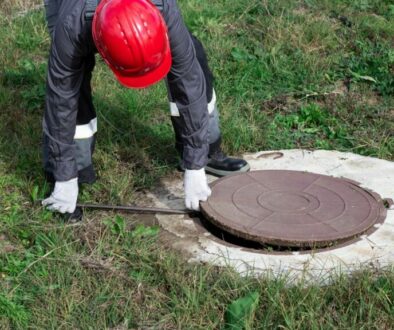How To Become An Irrigation Specialist?
A career as an irrigation specialist can be rewarding and fulfilling, especially for those who enjoy working with their hands and have a passion for horticulture. If you love the idea of working outdoors and being able to help conserve water, then becoming an irrigation specialist may be the perfect career for you. In this article, we will take a closer look at the steps you need to take to become an irrigation specialist, the skills required for the job, what the role entails, and the benefits of working in this ever-growing field.
Steps To Becoming An Irrigation Specialist
The field of irrigation technology is rapidly growing and becoming increasingly important in today’s world. As water resources become scarcer, the need for skilled professionals who can design, install, and maintain efficient irrigation systems is ever-increasing. If you are interested in becoming an irrigation specialist, here are some steps you can take to achieve your goal:
- Complete Your High School Education
The first step in becoming an irrigation specialist is to complete your high school education or obtain a GED equivalent. This will provide you with a solid foundation in basic skills such as mathematics, science, and communication, which will be essential in your future studies and career.
- Enroll In A Certification Program
After completing high school, you can enroll in a college or trade school that offers certification programs in irrigation technology. These programs typically cover a wide range of topics, including water quality, soil science, irrigation system design, installation, and maintenance. Some programs may also include courses on business management, which can be helpful if you plan to start your own irrigation business in the future.
- Gain Hands-On Experience
While completing your certification program, it is important to gain hands-on experience by working as an apprentice to a professional irrigation specialist. Apprenticeships offer a rare opportunity to gain knowledge under the guidance of an experienced professional, as well as to earn money while you learn. This experience will be invaluable in your future career as an irrigation specialist.
- Obtain Certification
Once you have completed your education and gained experience, you can choose to be certified by a recognized organization such as the Irrigation Association. While not all states require certification, it is a great way to demonstrate your commitment to the industry and improve your career prospects. Certification programs typically require passing an exam and meeting certain education and experience requirements.
Becoming an irrigation specialist requires a combination of education, hands-on experience, and certification. With dedication and hard work, you can become a skilled professional in this growing field and make a positive impact on the world around you.
Skills Needed For Becoming An Irrigation Specialist
As an irrigation specialist, you will be responsible for designing, installing, and maintaining irrigation systems for residential, commercial, and agricultural properties. In addition to the technical skills mentioned, there are several other skills that can help you become a successful irrigation specialist.
First and foremost, you must have a strong work ethic and be willing to work long hours, especially during peak season. You should also be comfortable working in various weather conditions, including extreme heat and cold. The ability to work well under pressure is also important, as you may be required to troubleshoot and fix problems quickly.
Another important skill for an irrigation specialist is adaptability. Each project you work on will be unique, and you must be able to adapt your skills and knowledge to meet the specific needs of the project. This requires a willingness to learn and stay up-to-date on the latest irrigation technologies and techniques.
Effective communication is also crucial for an irrigation specialist. You will need to work closely with clients to understand their needs and preferences, as well as communicate clearly with other members of your team. This includes being able to explain technical concepts in a way that is easy for clients to understand.
Finally, a passion for the outdoors and the environment can make a big difference in your success as an irrigation specialist. You will be responsible for ensuring that irrigation systems are designed and installed in a way that is both efficient and environmentally friendly. This requires a deep understanding of local water regulations and conservation practices, as well as a commitment to protecting the environment.
What is an Irrigation Specialist?
As water conservation becomes increasingly important, irrigation specialists are becoming more valuable in both urban and rural areas. They use their expertise to help customers reduce their water usage while keeping their plants and crops healthy.
One of the key tasks of an irrigation specialist is to inspect and diagnose problems with existing irrigation systems. This can involve testing water pressure, checking for leaks, and examining the condition of pipes and sprinkler heads. Once they have identified the issue, they can then recommend and implement the necessary repairs.
In addition to repairing existing systems, irrigation specialists also design and install new systems. This involves assessing the needs of the area to be irrigated, selecting the appropriate equipment, and designing a system that will distribute water evenly and efficiently. They must also take into account factors such as soil type, plant types, and the local climate.
When working with customers, irrigation specialists must have strong communication and customer service skills. They must be able to explain their recommendations clearly and answer any questions the customer may have. They must also be able to work within the customer’s budget and time constraints.
Overall, the work of an irrigation specialist is vital to the health of plants and crops, as well as to the conservation of water resources. Their technical expertise and customer service skills make them a valuable asset to any project involving irrigation systems.
The Benefits of Working as an Irrigation Specialist
Working as an irrigation specialist is a fulfilling and rewarding career choice, with many benefits that make it an attractive option for those seeking a stable and lucrative profession.
One of the most significant benefits of working as an irrigation specialist is the flexibility it offers. Whether you choose to work for an established irrigation company, start your own business, or work for a government department, you have the freedom to choose your working hours and schedule. This flexibility allows you to balance your work and personal life, making it an ideal career choice for those who value work-life balance.
Another benefit of working as an irrigation specialist is the job security it provides. As the world’s population continues to grow, the demand for food and water increases, making irrigation a critical aspect of modern agriculture. This high demand for irrigation services ensures that there will always be a need for irrigation specialists, providing job security and stability.
Working as an irrigation specialist also offers excellent earning potential, with above-average salaries. As you gain experience and specialize in areas such as design, installation, repairs, or sales, your earning potential increases, making it a lucrative career choice.
Moreover, the role offers ample opportunities for growth and advancement. You can work your way up to a management position, taking on more significant responsibilities and overseeing larger projects. Alternatively, you can start your own business, taking advantage of the high demand for irrigation services and building a successful enterprise.
Working as an irrigation specialist also provides an opportunity to work outdoors, which is ideal for those who enjoy being in nature and getting some exercise. It is a physically demanding job that involves digging, lifting, and carrying heavy equipment, making it an excellent way to stay fit and healthy.
Finally, working as an irrigation specialist is an excellent way to meet new people and build relationships. You will work with farmers, government officials, and other professionals, giving you the chance to network and form valuable connections in the industry.
Working as an irrigation specialist is a fulfilling and exciting career choice that offers many benefits, including flexibility, job security, excellent earning potential, growth opportunities, outdoor work, and the chance to meet new people. If you are looking for a stable and lucrative profession that provides a sense of purpose and fulfillment, then a career in irrigation may be the perfect choice for you.
Becoming an irrigation specialist requires a combination of technical knowledge, customer service skills, and experience. Completing a certification program or apprenticeship provides a great pathway to entering this ever-growing field. Once you have gained experience, you can build your career and take advantage of the numerous growth opportunities while enjoying the benefits of working outdoors and helping conserve water.




